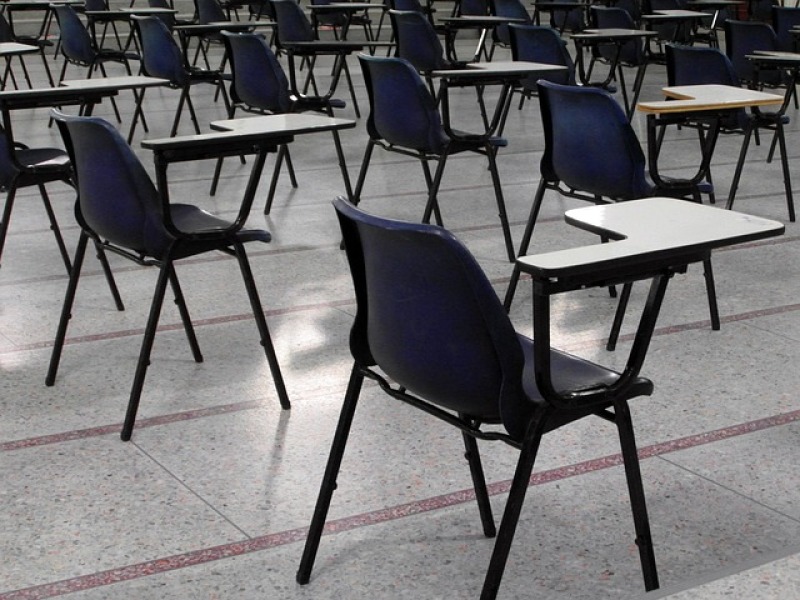

Growing up as an average high school student in Korea is no easy task, especially if you entered your senior year. While here in the U.S. when you enter your senior year, you would imagine having fun after sending in your college applications and taking fewer classes. If you are a high school student in Korea however, being a senior means going to more classes and either going to a public library or studying until midnight or spending the entire day with a private tutor either by yourself or with a team of students.
On the 12th of November, 800,000 high school students took the yearly college entrance exam or the "scholastic aptitude test". It is the equivalent of the SAT but students are allowed to take it only once a year, and there is an age limit saying that only students who are seniors in high school above could participate. This exam tests students on Korean (language arts), mathematics, English, and depending on the students preference, 2 additional subjects that vary from the natural sciences to history, economics, and geography. Students also have the option of being tested on a foreign language other than English.
For years, students, parents and even teachers have criticized the Ministry of Education for having this yearly exam determine not only what university high school students get admitted into, but even their future as a whole. The day the exam is hosted is a considered a day of national emergency where police officers literally transport students to their designated testing centers, and the Air Force does not host any drills that day in case they might bother the students who are in examination.
High school students dedicate their entire teen life to preparing and studying for this test, with their parents investing so much money into hiring tutors and sending their children to after-school educational institutes, called "Hakwon"s, so they could have a better chance at getting into a better university to a, at least financially, brighter future.
The problem is that this all-Korea exam is all relative. Only a certain number of students could get "A"s and a certain number of people of people could get "B"s. Different universities and different majors require different scores from this test. For instance, in order to be a business major at a local college at a province, one would not need to score as high on the test as a student who wants to go to business school at Seoul National University (Korea's top institute). In addition, a student admitted to Seoul National University as pre-med would have to far outperform a student who got into the same school as a history major or a geography major.
Whole families accumulate substantial amount of debt while investing so much into their children's education. Even after students get into the college they wanted, they would most-likely spend the rest of their lives trying to pay back the debts that occurred from hiring tutors and going to lessons after school. Korea's Ministry of Education had made an attempt to address this issue.
Korea's Seoul Newspaper reported the Ministry of Education's solution to the problem was simply making the exam easier. College professors, who write the exam, had initially estimated that students would not need more instruction after school in order to do well if the exam was not too hard. After the 2015 exam was over, and the students got their grades back, it turns out that this was not the case.
Seoul Newspaper reported that while students overall scored much higher on the test than those who took it in previous years, too many of the students did well. Because grades were awarded to how well the students did relatively, in other words their national ranking compared to all 800,000 high school seniors, problems occur. If a university required a student to get an A to apply, normally being in the top 6% granted the student an A grade. However, if too many students got perfect scores, then other students who scored even 99 % on the test would not be able to apply. This is exactly what happened this year.
Megastudy, an online educational institute reported that they estimated that for language arts a student would have to score 97 % to get an A Grade. For English, one would have to get 98 %, and for math, it was 100 %. Literally one wrongly answered question could send a student to a university that was ranked several stages below the one he dreamed of attending. A student would have to score around 395 out of 400 total points to apply to a popular major at Seoul National University.
Parents and students are expressing outrage at the Ministry of Education for their extremely unsuccessful solution to the problem of removing the burden of private education from their shoulders.
Many educational experts however explained that the core of the problem was not the exam itself, but Korea's culture where many people put such heavy importance on one's educational background. There is a famous joke that college students use all the time when it is time for them to start job-hunting: "Your college GPA really doesn't matter. What matters is what college you came from."


















